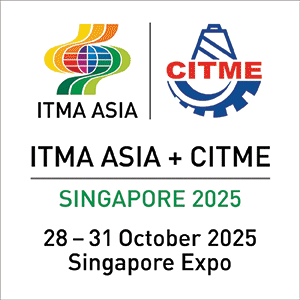 The ninth round of free trade agreement (FTA) talks between India and the European Union (EU), which will resume on Monday, are likely to address the issue of duty relief for Indian textile products in EU markets, two people aware of the matter told. While India is advocating labour-intensive textiles and apparel products to be classified as non-tariff items in the ongoing negotiations, the EU imposes higher import duties, typically ranging from 10-12%, on textile products, placing India at a disadvantage against China, the EU’s leading supplier of apparel and textiles, the people mentioned above said.
The ninth round of free trade agreement (FTA) talks between India and the European Union (EU), which will resume on Monday, are likely to address the issue of duty relief for Indian textile products in EU markets, two people aware of the matter told. While India is advocating labour-intensive textiles and apparel products to be classified as non-tariff items in the ongoing negotiations, the EU imposes higher import duties, typically ranging from 10-12%, on textile products, placing India at a disadvantage against China, the EU’s leading supplier of apparel and textiles, the people mentioned above said.
“The issue of duty relief for Indian textile products in EU markets will be taken up when the FTA talks resume on 23 September and go on till 27 September,” the first person mentioned above said, who spoke on the condition of anonymity.
Negotiations for an FTA with the EU were launched in June 2022.
The eighth round
During the eighth round of talks in June, discussions were held on 21 policy areas and chapters, which included carbon tax, pesticides, and services. The negotiators also discussed sticky issues such as stringent EU safety standards for agricultural commodities and drugs and high tariffs. Other key issues discussed included India’s trade disputes with the World Trade Organization regarding products like mobile phones and components, integrated circuits and optical instruments.
Meanwhile, when the ninth round of talks resume on Monday, both sides, India and the EU, will have discussions on a 12-point agenda, which includes deforestation, electric vehicles, sustainability, carbon tax or Carbon Border Adjustment Mechanism (CBAM), sanitary and phytosanitary (SPS) measures, technical trade barriers, textiles, in services benefits for IT professionals, trade of more goods and services, taxes on liquors, among the others, the second person mentioned above said, requesting anonymity.
“India is pushing for the relaxation of the Carbon Border Adjustment Mechanism for its Micro, Small and Medium Enterprises (MSMEs) and seeks to enhance trade in electric vehicles (EVs). The upcoming talks also focus on greater access for India’s services sector, tariff reductions, and strengthening investment protection,” the second person added.
Queries emailed to the spokespersons of the commerce ministry and the EU remained unanswered till press time.
India’s exports to Europe
India’s exports to Europe have been rising since FY21 in tandem with the global economy emerging from the pandemic. India’s exports to Europe, in value terms, was $98.88 billion in FY24, up from $98.34 billion in the previous year, while imports were $95.77 billion during the same period, up from $90.99 billion in FY23.
“As India and the EU continue their negotiations, reaching a comprehensive agreement holds significant promise for boosting trade and investment between the two economies. With the potential to eliminate tariffs on a wide range of goods and services, the India EU Broad based Trade and Investment Agreement (BTIA) could open up new opportunities for Indian and European businesses,” said Ajay Srivastava, a former trade services official and founder of economic think tank Global Trade Research Initiative.
“However, key challenges such as sustainability regulations, labour standards, and tariff asymmetries remain. A political push and pragmatic approach will be necessary to bridge these gaps and ensure that the India-EU BTIA becomes a cornerstone of their strategic economic partnership,” he added.





















